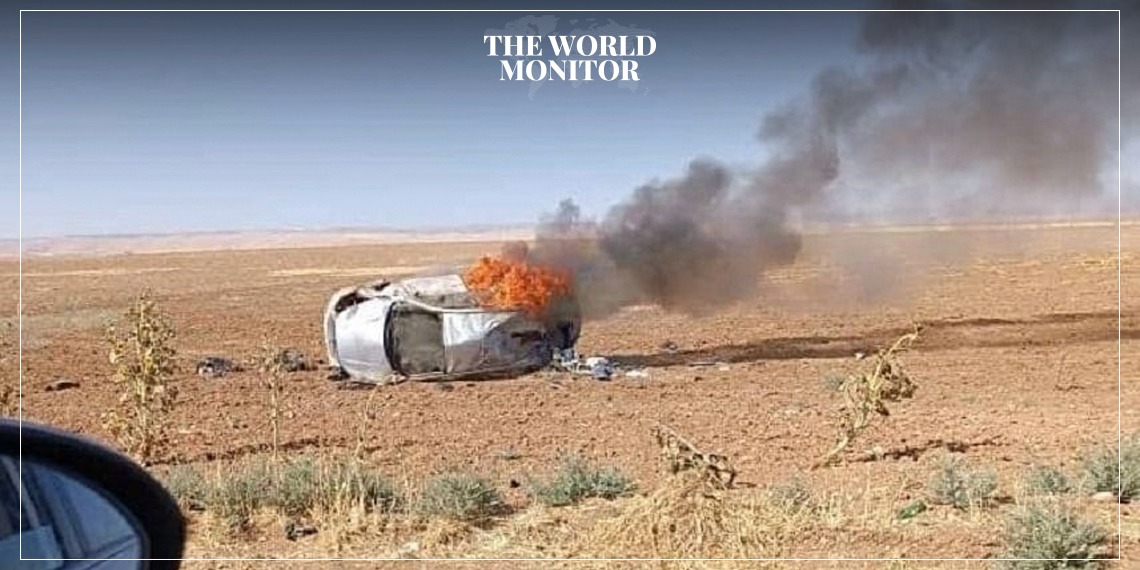Reports emerging from Syrian and Iraqi sources on Sunday reveal that Turkish drones executed several strikes against Kurdish military personnel in the outskirts of Syria’s Al-Qamishli and Sinjar City, Northern Iraq.
Iraqi security sources confirmed that three fighters affiliated with the Sinjar Resistance Units, part of the Kurdistan Workers’ Party, were killed in a Turkish drone attack in Northern Iraq this Sunday.
Two security informants mentioned that the Sinjar Resistance Units’ trio were in a vehicle in the Sinjar region when they were targeted by a drone strike. Meanwhile, in Al-Hasakah province, a Turkish drone targeted a military vehicle belonging to the Internal Security Forces, “Asayish,” resulting in the death of four military personnel, including a Kurdish leader. Another individual sustained severe injuries during the assault and has been transported to a medical facility for treatment, as per the Syrian Observatory for Human Rights.
This incident marks the 49th aerial strike orchestrated by Turkish military drones on regions under the “Autonomous Administration” of North and Northeast Syria since the beginning of 2023, leading to the unfortunate death of 62 individuals and leaving over 53 wounded.
Turkey has been conducting an extensive campaign in Iraq and Syria against militants of the Kurdistan Workers’ Party, the Sinjar Resistance Units, and the Syrian Kurdish People’s Protection Units, which Ankara categorizes as terrorist entities.
The tensions between Turkey and Kurdish groups have been longstanding and deeply rooted in historical, political, and territorial disputes. Turkey has been particularly concerned about the Kurdish militants’ activities, perceiving them as direct threats to its national security. This view stems primarily from the linkage between the Kurdish militants operating in Syria and Iraq and the Kurdistan Workers’ Party (PKK), which has waged a decades-long insurgency in Turkey. The continuous aerial assaults underscore the volatile situation in the region and raise international concerns about the potential escalation of conflicts.






